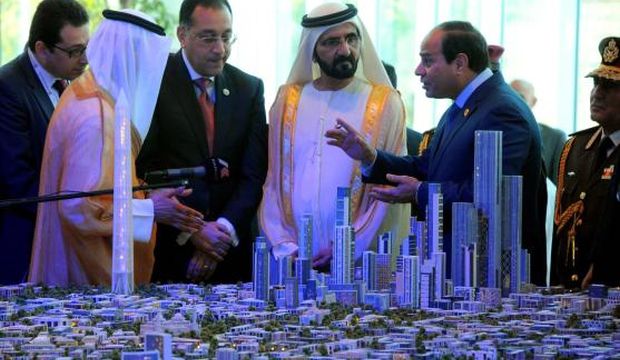New F-16 warplanes, Harpoon missiles and M1 tank kits are being shipped to Egypt’s armed forces, which are engaged in a difficult fight against extremist groups in the Sinai Peninsula. They are also protecting their border with Libya—the second front. But why does the US suddenly seem to be so devoted to President Abdel-Fattah El-Sisi’s administration?
Washington has retreated from its decision to punish the Egyptian authorities for toppling the Muslim Brotherhood. US President Barack Obama has, since then, contacted his Egyptian counterpart to reconcile and inform him of the decision to resume military and economic aid—a US policy that has been in place since the era of former Egyptian President Anwar Sadat and which Washington froze in late 2013 following Mursi’s ouster.
The chapter of Muslim Brotherhood rule—from 2012 to mid-2013—has been completely forgotten in the international arena. However, it lives on in the virtual world of social media sites such as Twitter and Facebook.
After the Muslim Brotherhood lost US support of its “legitimacy,” it sought to attempt to sabotage Egyptian-Arab relations, spreading rumors regarding the apparent absence of Egyptian forces fighting alongside their ally Saudi Arabia in the coalition against Houthi militias in Yemen. Some of Saudi’s coalition partners have been saying that relations between the two countries have relapsed.
This supposition ignores the activity of Egypt’s navy south of the Red Sea. It also ignores what’s more significant: that strategic relations between Saudi Arabia and Egypt have actually become more solid. In this current era of chaos in our region, both parties greatly value this partnership.
We can appreciate how precious bilateral ties are and how they cannot be given up just because a few journalists have an opposing viewpoint or because there are some among the opposition who want to sabotage relations.
The region needs relations between states that are not easily shaken by differences, rumors or those with their own agendas. As long as the nature of the threats is clear, collective relations will deepen and allies will be better able to confront differences and whatever disagreements rivals may incite.
It’s normal that in this diplomatic jungle, the best protection for the region’s countries is their alliances with one another. This confronts the threat of a country being singled out and weakened by the wolves, both those outside and within.
Without solid relations, these countries can easily fall prey, one after the other. Egypt is a big country and even Egypt needs regional relations to adequately confront the threats it faces—threats like those challenging Saudi Arabia, which was dragged into its first war in a quarter of a century in Yemen.
The situation today is more complicated than before. Years ago, the world was divided into two camps where each party participated in wars on the side of their allies and whoever was outside the alliance ended up being an easy target. But today, we can no longer simply count on pledges from foreign camps and there are few alternatives to building a regional network of alliances based on shared interests.
By building relations with clear aims and commitments, it will later be possible for all parties to sit down together at the negotiating table in order to reach a regional understanding.
However it’s not possible to sit and negotiate with a party when it is pointing a gun at you and when that party is, quite frankly, determined to destroy the region. Iran and its allies have spread terrorism across our region, including in Iraq and Syria. In Syria, this has reached the south of the country, not far from Jordan’s borders. Meanwhile, Iranian-backed Houthi militias are in control of large parts of the country and most recently have taken over two neighborhoods in the southern city of Aden.
Iraqi militias, who are also supported by Iran, stirred up a battle near the Kuwaiti border a month ago. Egypt, as I said, is fighting a major conflict in Sinai against the so-called “emirate of Sinai.” Cairo may also find itself forced into direct military action in Libya due to the establishment of terrorist statelets there.
Politicians don’t need us to remind them about the threat of a major regional war breaking out, this is something they are well aware of. But there might be a need to remind them of the importance of working together to build an alliance that is capable of dealing with and overcoming whatever it faces, including the calculations of rival regional and foreign powers.
